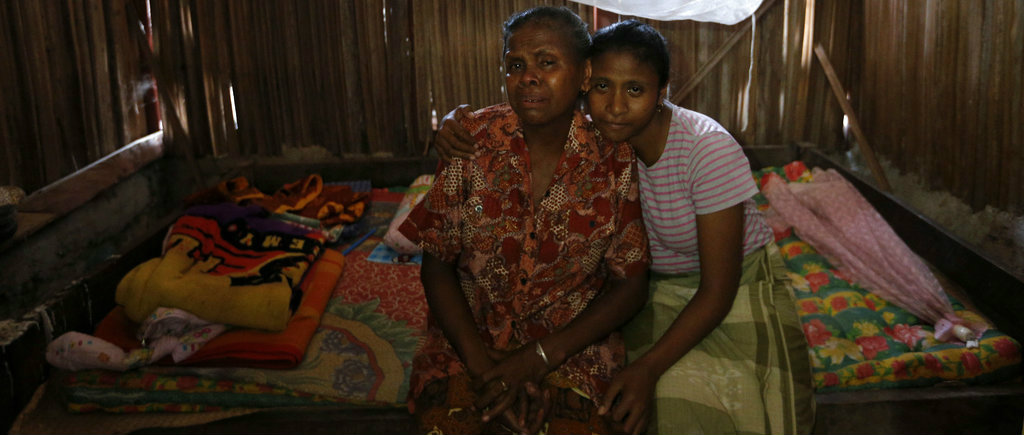The stranger showed up at the girl's door one night with a tantalising job offer: Give up your world, and I will give you a future.
It was a chance for 16-year-old Marselina Neonbota to leave her isolated village in one of the poorest parts of Indonesia for neighbouring Malaysia, where some migrant workers can earn more in a few years than in a lifetime at home. A way out for a girl so hungry for a life beyond subsistence farming that she walked 22 km every day to the schoolhouse and back.
She grabbed the opportunity — and disappeared.
The cheerful child known to her family as Lina joined the army of Indonesians who migrate every year to wealthier countries in Asia and the Middle East for work. Thousands come home in coffins, or vanish. Among them, possibly hundreds of trafficked girls have quietly disappeared from the impoverished western half of Timor island and elsewhere in Indonesia's East Nusa Tenggara province.
The National Agency for Placement and Protection of Indonesian Workers has counted more than 2,600 cases of dead or missing Indonesian migrants since 2014. And even those numbers mostly leave out people like Lina who are recruited illegally — an estimated 30 percent of Indonesia's 6.2 million migrant workers.
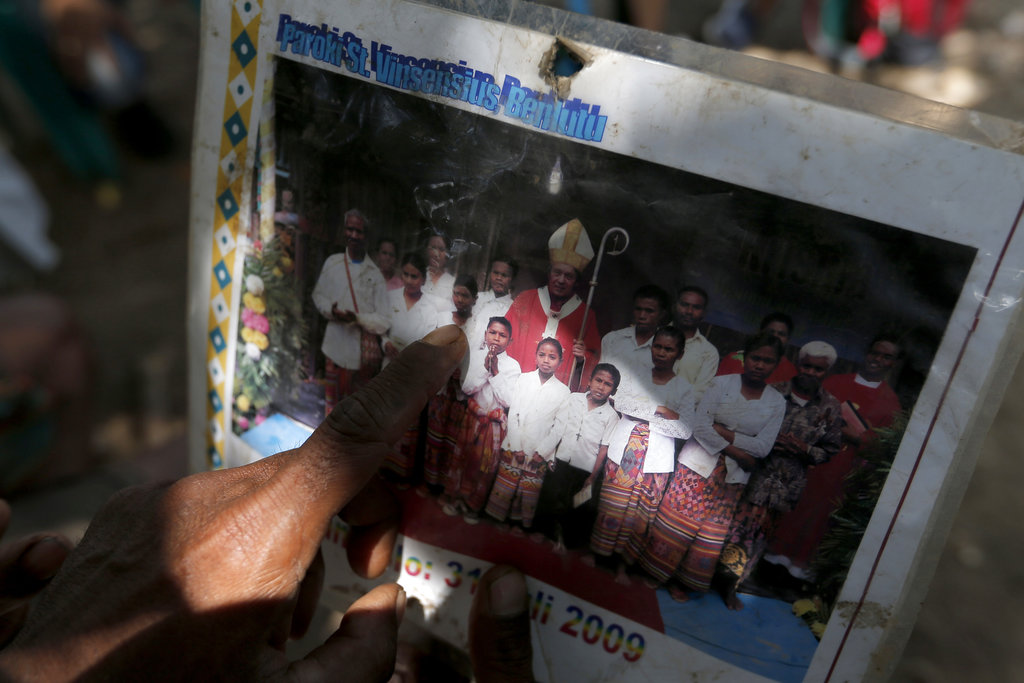
A photograph, taken in July 2009, shows Marselina Neonbota, (third from left) posing with the district Bishop. Marselina left home eight years ago for a job in Malaysia, a place where some Indonesian migrant workers can earn more money in a few years than in a lifetime at home. She never returned. Fatukoko village in West Timor, is one of the driest parts of Indonesia, making farming difficult. Many villagers thus migrate to neighbouring Malaysia in search of work. AP
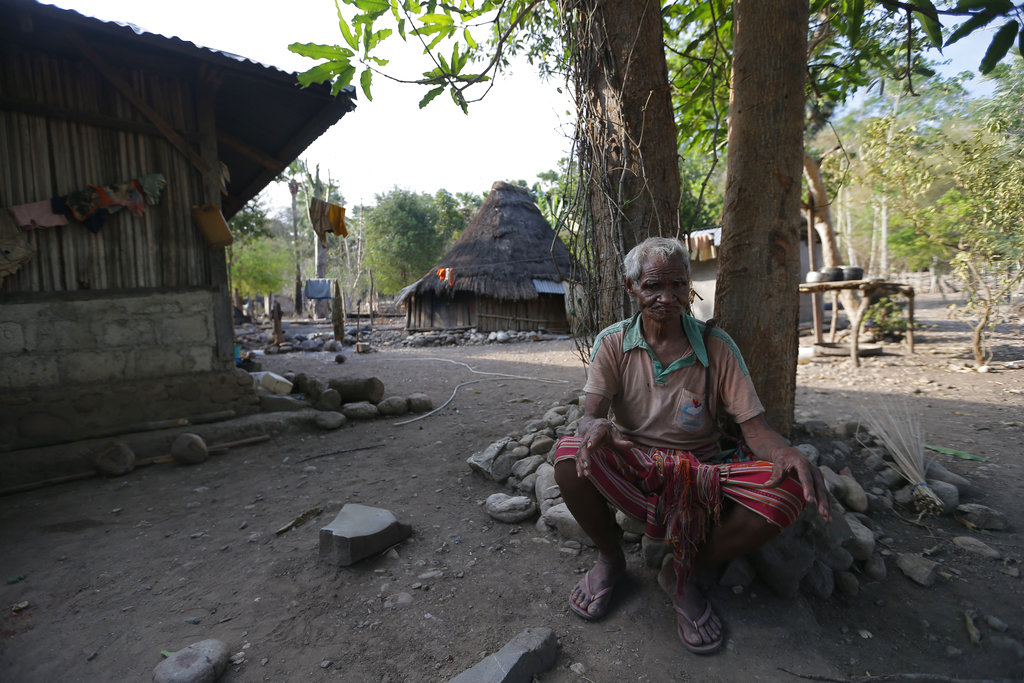
Marselina Neonbota's great-uncle Laurencius Kollo prayed every night for his niece's return. One day in March this year, word arrived that a neighbour's daughter was returning home from Malaysia. Kollo thought Lina was coming with her. In a rush of hope, the frail 69-year-old climbed a tree to pick some betel leaves. Kollo slipped, crashed to the earth and blacked out. When he awoke, his arm was broken. And so was his heart. Because Lina never came home that day. AP
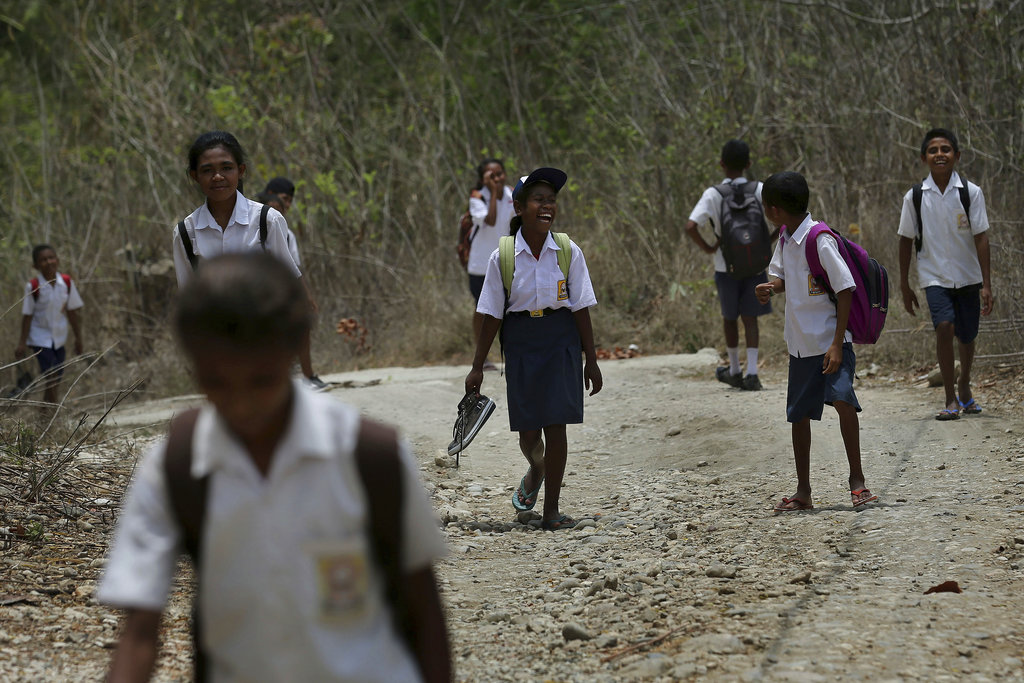
Students walk on dirt road after school in O'of village in West Timor, Indonesia. Children in this impoverished region of Indonesia often must walk long distances to school. Upon graduation, their job opportunities are limited, leaving them with few options beyond a lifetime of subsistence farming in a land punished by drought. AP
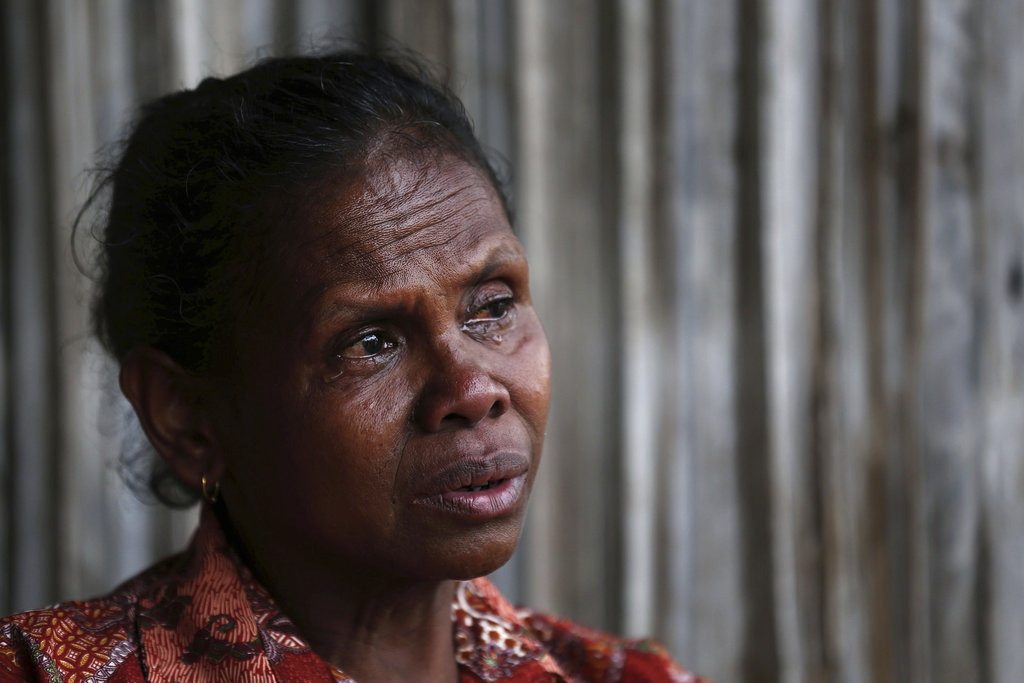
Yohanna Banunaek cries as she talks about her late daughter Adelina Sau, in Abi village in West Timor, Indonesia. Sau had been working as a maid for a Malaysian family when a local lawmaker's office received a tip from neighbours who suspected she was being abused. An autopsy determined she died of septicemia and cited possible abuse and neglect. AP
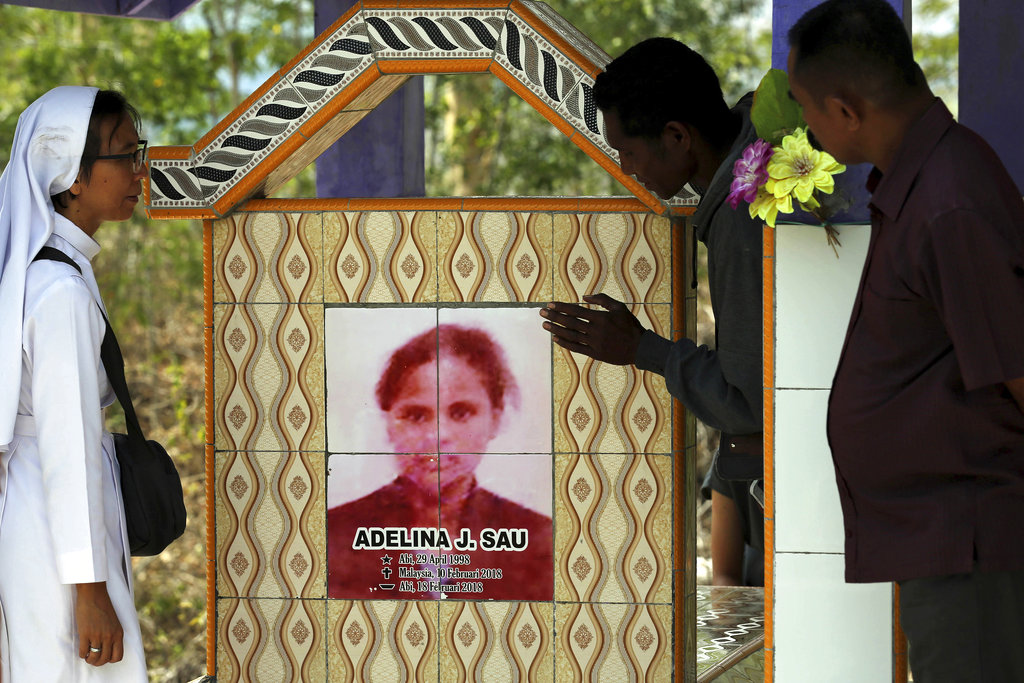
Adelina's long journey home came in a shrink-wrapped coffin marked "Fragile". Her grave, in Abi village, West Timor, lies along the side of a lonely road. Staring out from the tombstone's tiles is a blurry picture of her face, an image taken from a photo a cop snapped of her passport.That grainy picture-of-a-picture is the only photo of Adelina that her family has. AP
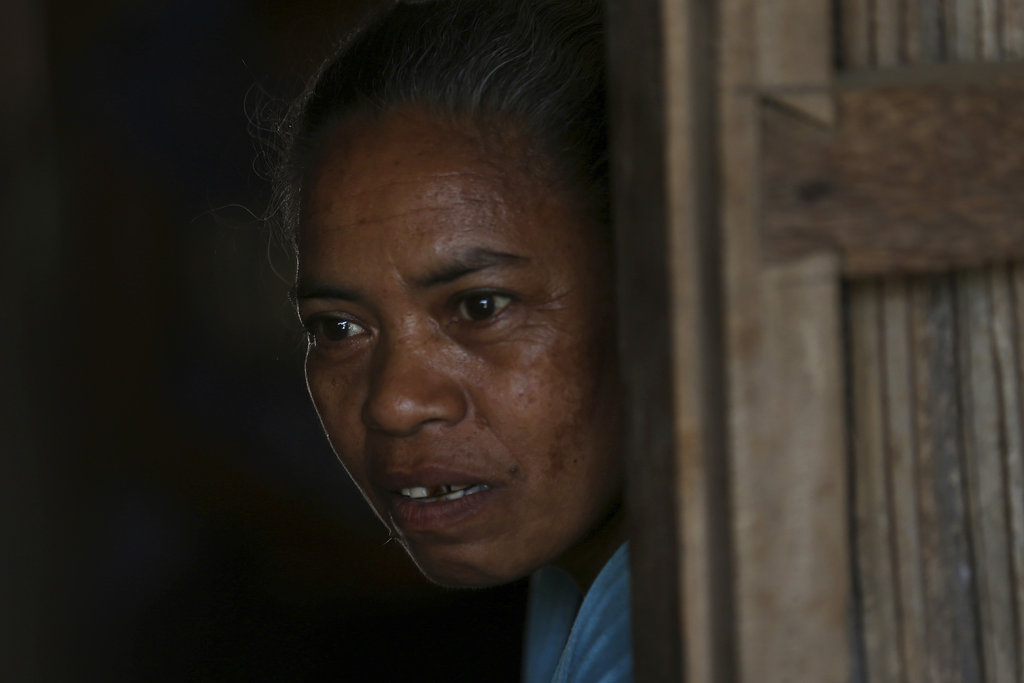
Margarita Oematan, grandmother of Orance Faot, looks out of her home in O'of Village in West Timor, Indonesia. Orance told her grandmother that she was going with her older cousin Yeni to a priest's house to study the Bible. She didn't return. Her cousin is believed to have trafficked her to Malaysia. Her family has not heard from her in four years. AP

